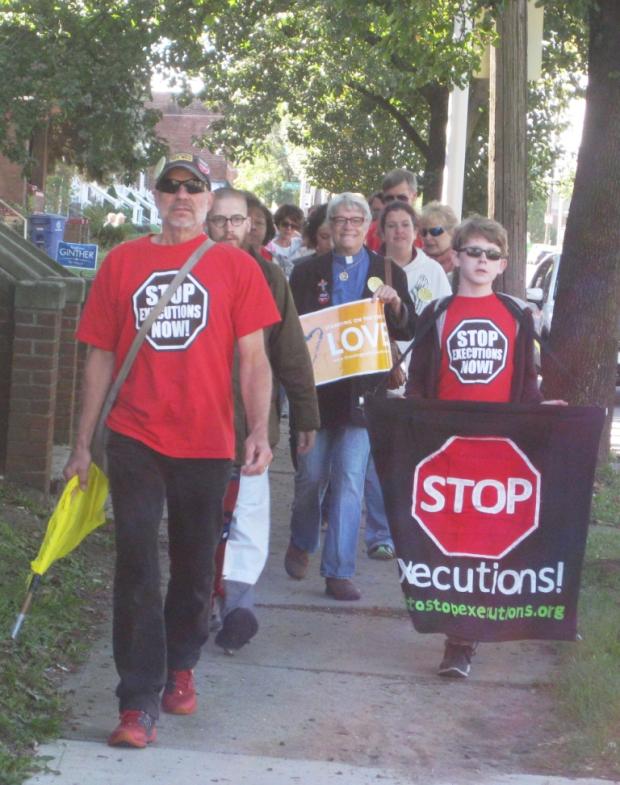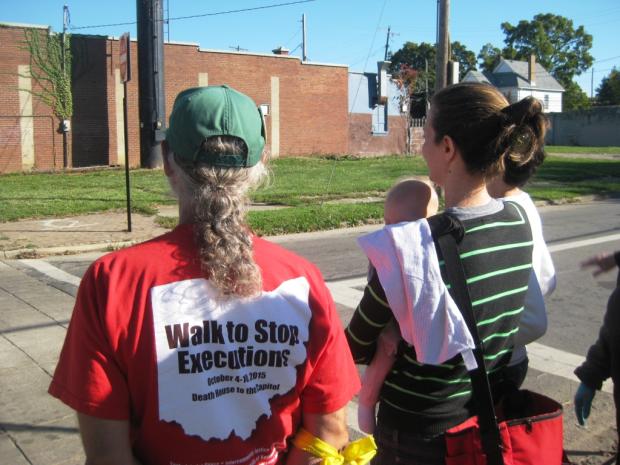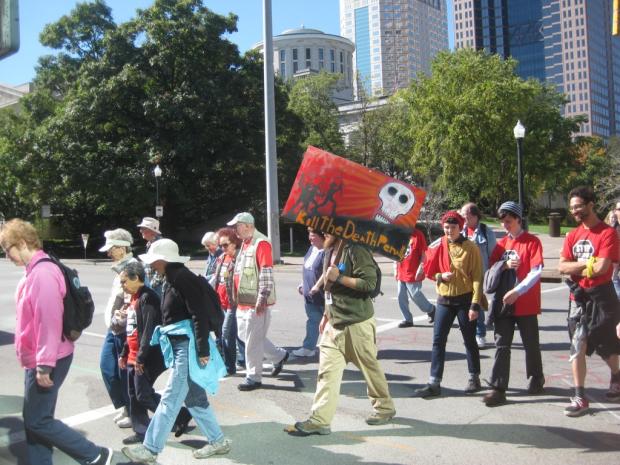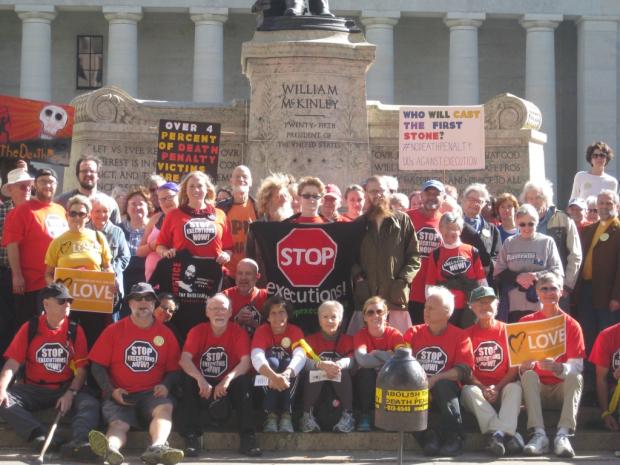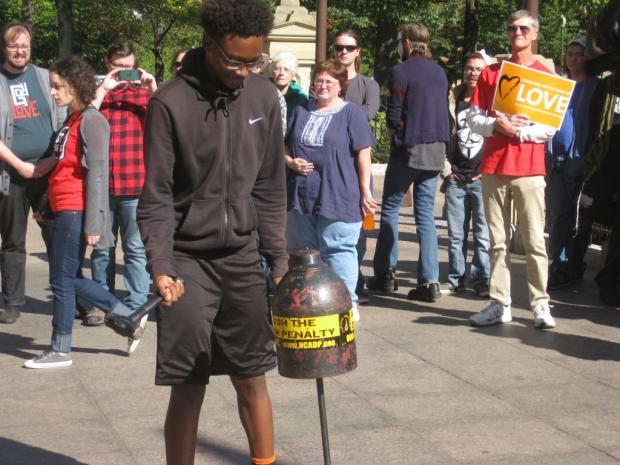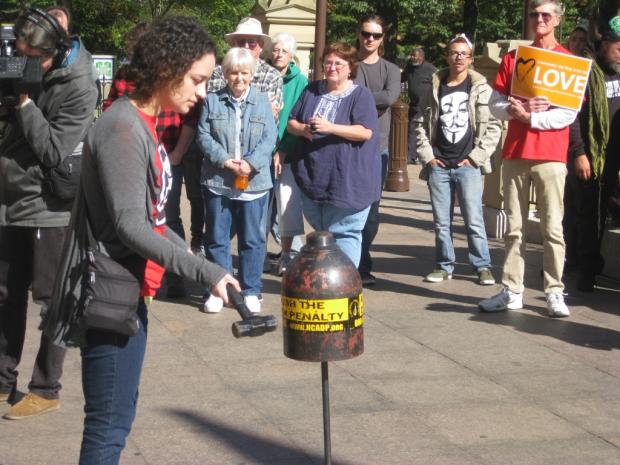“I really appreciate what you all are doing,” said death row inmate Keith LaMar on Saturday morning from the Ohio State Penitentiary, the supermax prison in Youngstown. “Keep pushing for it!”
LaMar was speaking on the phone to more than 80 death penalty opponents gathered outside Southwood Elementary School as they prepared to walk the final two miles of the Walk to Stop Executions.
A dozen of the protesters completed the entire week-long, 83-mile trek, sponsored by Ohioans to Stop Executions. They started at the death house at the Southern Ohio Correctional Facility near Lucasville, and stopped overnight at Catholic, Protestant, and evangelical churches along the way.
“What do we want? Abolition! When do we want it? Now!” chanted the walkers as they proceeded up South High Street to the Ohio Statehouse. They gathered on the west side of the Statehouse and took turns tolling a bell to call for an end to the death penalty in Ohio. From there they walked to the Trinity Episcopal Church on the east side of the Statehouse for a rally.
Rev. Jeff Davis, a Southern Baptist minister affiliated with the Texas Coalition to Abolish the Death Penalty, gave the invocation inside the church. “God, we gather to admit that most days we don’t give a shit about the death penalty,” he said. “Most days we wake up and don’t even think about the blood that is being shed. We ask that you make us angry. We ask that you help our anger to grow, that it may turn into a rage against injustice.”
“I’m against the death penalty because it doesn’t work,” said Ohio State Representative Dan Ramos. “I’m against the death penalty because it’s unfair. It’s applied more to poor people than to rich people. It’s applied unevenly depending on the race of the perpetrator and the race of the victim.
“I’m against the death penalty because it’s expensive,” said Ramos. “It costs nearly $2 million more to put a person to death than to allow for life imprisonment.” The money would be better spent educating children, feeding the hungry, and repairing roads, he said.
Miami University student Maggie Botts began an intensive study of the death penalty a few weeks ago, and her perspective has been transformed by it. “Doing the walk was the first thing that I could do work toward abolition of the death penalty,” she said.
“I am guided by the Unitarian Universalist principle that affirms the inherent worth and dignity of every person,” said Howard Tolley, executive director of Unitarian Universalist Justice Ohio. “My St. John’s UU Church in Cincinnati grieves the brutal killing of a 13-year-old member by a serial killer who is now on death row. We oppose his execution, and so did the victim’s mother.
“Whether churched or unchurched, atheist or deist, Republican, Democrat, or socialist, we need the help of everyone here today to stop executions in Ohio,” Tolley said.
Senate Bill 154 and House Bill 289 have been introduced to abolish the death penalty in Ohio.

